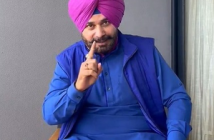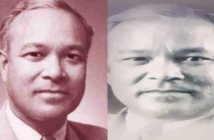By Ashis Ray
London, June 5 (IANS) With just two days to go before the start of the ICC World Test Championship final, Rahul Dravid, head coach of the Indian cricket team, exuded cautious confidence about India’s chances in the match.
Addressing the media here, he said: “The team that plays good cricket over five days will win. I fully believe if we play good cricket – we have the players, we have the ability – if we take 20 wickets and make runs, we can win this match.”
That could be construed as stating the obvious. But he went on to say: “That there’s no hype (about India’s prospects) is a good thing.”
An encouraging weather forecast for the World Test Championship final at The Oval in south London – England’s oldest international cricketing venue, where the first Test was held in 1880 – has provided a psychological boost to the Indian team, confronted as they are with the challenge of having to compete at the climax of cricket’s most prestigious championship without the benefit of match practice in English conditions.
It was a wet spring; so, there is the likelihood of residual moisture on the pitch. On the other hand, the recent and anticipated sunshine could dry the track, without quite hardening it to generate disconcerting bounce. Last week in the England versus Ireland Test at Lord’s, north of the British capital’s River Thames, the wicket eased into a somewhat flat surface from the second day onwards.
India are handicapped by the unavailability of Jasprit Bumrah, K.L. Rahul and Rishabh Pant due to injuries. At the same time, it’s clear that five batsmen, an all-rounder, a wicket-keeper and four bowlers will constitute the playing XI.
Speculation over who will stand behind the stumps is perhaps fanciful, since K.S. Bharat is not only a better exponent with the gloves than Ishan Kishan, but has played at the highest level, that too, against Australia, whereas his Kishan is yet to make the grade.
Noticeably, Kishan batted extensively at the nets at The Oval on Sunday, while the veteran Ajinkya Rahane surprisingly didn’t do so at all.
However, the question remains as to whether the line-up will have four fast bowlers or two spinners. If the former, then Ravichandran Ashwin is likely to be dropped. If otherwise, then the tour think-tank will have to choose between Umesh Yadav and Shardul Thakur.
Even in an environment unfavourable to him, as in the previous WTC final at Southampton in 2021, Ashwin impressed with his economy and wicket-taking ability. Also, with four left-handers among Australia’s batsmen, an off-spinner like Ashwin should be an asset.
In contrast, Yadav only really comes into his own with reverse swing; and while Thakur is more effective when the ball moves in the air and exhibited a fine all-round display against England at The Oval two years ago, his form in the recently-concluded IPL was disappointing.
Talking about the Test a couple of years ago, India won the match to take a 2-1 lead in the series, only to lose the re-scheduled final Test at Edgbaston last year, where the visitors’ somewhat one-dimensional attack in the absence of Ashwin failed to close the contest.
Australia, the most successful cricket-playing nation, are formidable opponents anywhere and at any time. While the Indians were earlier practising at the idyllic Duke of Norfolk’s estate in Arundel in Sussex, the Aussies were doing likewise at Beckenham in Kent.
On Sunday, they announced that paceman Josh Hazelwood has not sufficiently recovered from a side strain. This could mean in-swing bowler Scott Boland, who averages 13.42 with the ball in Tests, will join captain Pat Cummins and Mitchell Starc to form a trio of specialist quick bowlers, with all-rounder Cameron Green as the fourth option.
The Indian vice-captain, Cheteshwar Pujara, who has been among the runs for Sussex in the county championship, will be the only Indian with match practice on English pitches leading up to the WTC final. Among the Australians, the same would be true of Steve Smith and Marcus Labuchange.
Openers often hold the key to a side’s overall batting stability. In this case, Indian skipper Rohit Sharma, who was dominant during the last tour of England, but was short of runs in the IPL, and the promising Shubhman Gill are not short of talent. But they are likely to be tested in the early overs by the pace of Cummins and Starc operating with the Duke ball with its more pronounced seam; and therein would hinge a critical element of the match.
Mohammed Shami and Mohammed Siraj indicated excellent rhythm in the IPL, which, if replicated, could reap the rewards. Besides, Ravindra Jadeja – as he showed in the home series against Australia in February-March – has returned from his injury a rebooted bowler; and should in theory trouble right-handers.
(Senior cricket writer Ashis Ray is a broadcaster and author of the book ‘Cricket World Cup: The Indian Challenge’)
–IANS
ashis/arm




